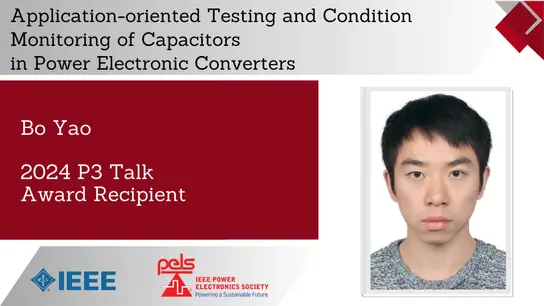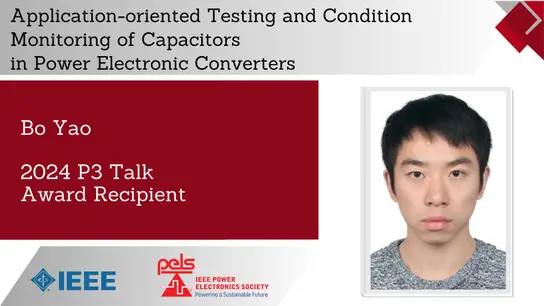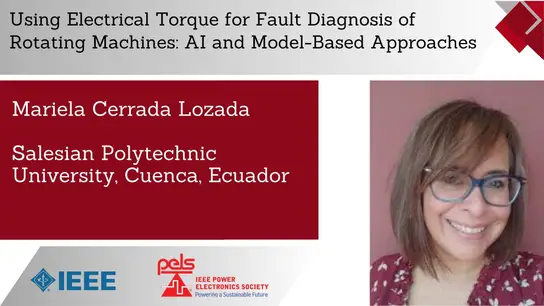-
Members: FreePELS
IEEE Members: $8.00
Non-members: $12.00Pages/Slides: 62
04 Aug 2020
Abstract:The transportation sector consumes approximately 28 percent of the total energy consumption. The most prominent sustainable solution to profoundly reduce both oil consumption and greenhouse gas emissions lies in grid-enabled electric vehicles (EVs). These vehicles are propelled either partially or fully by electricity through energy storage systems such as electrochemical batteries, which need to be charged from the grid. One of the most important realities that will facilitate the adoption of grid-enabled plug-in EVs (PEVs) is the method by which these vehicles will be charged. Currently, conductive charging is the dominant charging technology in commercially available PEVs.
In this webinar, I will give an extensive overview of the conductive charging technology of PEV from the perspective of a power electronics professional. The background review covers the charging power levels, PEV charger architectures, charging profiles of Lithium-ion batteries, as well as the challenges and opportunities. Followed by is a comprehensive review of state-of-the-art emerging solutions to those technological challenges. The advanced topics include innovative circuit topologies, advanced control strategies, integrated architectures wide bandgap devices, and boosted power density with high switching frequency. Furthermore, I will give an introduction to our recent related research works. Finally, the webinar concludes with an outlook on future technology trends.
In this webinar, I will give an extensive overview of the conductive charging technology of PEV from the perspective of a power electronics professional. The background review covers the charging power levels, PEV charger architectures, charging profiles of Lithium-ion batteries, as well as the challenges and opportunities. Followed by is a comprehensive review of state-of-the-art emerging solutions to those technological challenges. The advanced topics include innovative circuit topologies, advanced control strategies, integrated architectures wide bandgap devices, and boosted power density with high switching frequency. Furthermore, I will give an introduction to our recent related research works. Finally, the webinar concludes with an outlook on future technology trends.
Primary Committee:
PELS


